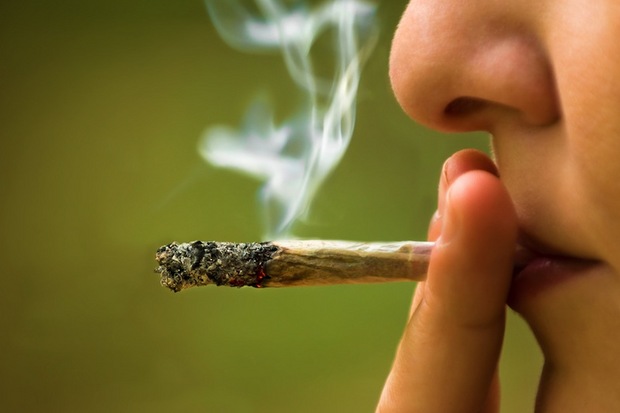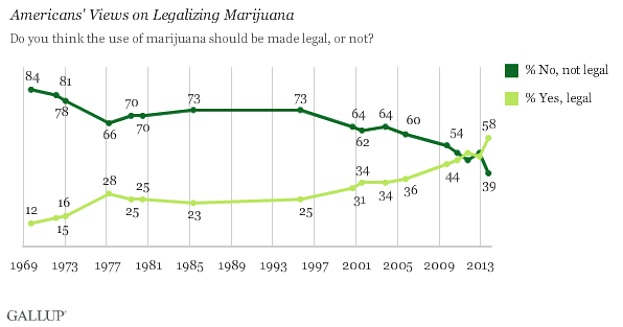US Support for Marijuana Legalization at Its Highest Yet

Public opinion on pot legalization appears to have crossed a major threshold: For the first time, a Gallup poll found that a solid majority of American adults supports making marijuana legal.
Fifty-eight percent of Americans say the drug should be legal, according to Gallup's latest survey, compared with 39 percent who oppose legalization. The other 3 percent had no opinion.
When Gallup first asked about pot in 1969, only 12 percent favored marijuana legalization. That weed-backing minority grew to 28 percent by 1977 and then stagnated for two decades before starting to steadily pick up more supporters around the year 2000. [Trippy Tales: The History of 8 Hallucinogens]
As far as Gallup's surveys go, public support for pot legalization hit a previous record high of 50 percent in 2011. Last year, 48 percent of Americans told the polling organization that they supported legalization.
Pot politics

Self-described Independents have driven the most recent changes in public opinion, with 62 percent now in favor of pot legalization, up from 50 percent in November last year. Democrats and Republicans remain divided on the issue; 65 percent of Democrats favor making marijuana legal, while just 35 percent of Republicans said the same.
Younger Americans, ages 18 to 29, are more likely to support legalizing pot than any other age group, with 67 percent in favor. Americans 65 and older are the only age group with a majority (53 percent) opposing pot legalization.
Sign up for the Live Science daily newsletter now
Get the world’s most fascinating discoveries delivered straight to your inbox.
Marijuana is currently legal for medical use in more than 15 U.S. states, including California, Arizona and Maine. Most patients need to obtain a prescription for the drug from their doctors and buy the drug from dispensaries.
Recreational marijuana sales, meanwhile, are set to begin in Colorado and Washington as early as January 2014 after both states passed ballot initiatives in 2012 to legalize weed. Earlier this year, the Department of Justice announced it would not challenge those laws, as long as the states follow strict sale and distribution rules.
The acceptance of marijuana use over the past four decades could be attributed to changing social mores, Gallup researchers said.
"The increasing prevalence of medical marijuana as a socially acceptable way to alleviate symptoms of diseases such as arthritis, and as a way to mitigate side effects of chemotherapy, may have also contributed to Americans' growing support," Gallup officials wrote, adding that the changing tide in public opinion on pot will likely spur further legalization measures.
The latest survey was conducted from Oct. 3 to 6, 2013, using phone interviews with a random sample of 1,028 adults, ages 18 and older, Gallup said.
Follow Megan Gannon on Twitter and Google+. Follow us @livescience, Facebook & Google+. Original article on LiveScience.










